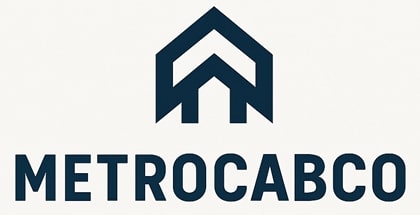AI-first SEO is essential for achieving online visibility in 2025. It leverages machine learning to enhance keyword research and employs natural language processing to create engaging content. Predictive analytics helps anticipate search trends, while optimization for voice search caters to conversational AI. Personalization tailors user experiences, and data-driven decision making relies on AI insights. Future-proofing SEO strategies involves adapting to AI innovations for sustained growth. Explore further insights to gain a competitive edge and maximize engagement.
Key Takeaways
- Embrace AI-driven keyword analysis to understand evolving search behavior and adapt strategies accordingly for better visibility in 2025.
- Utilize predictive analytics to identify and create timely content that aligns with emerging trends and user needs.
- Implement semantic search optimization techniques, such as topic clusters, to enhance content relevance and authority in search results.
- Leverage natural language processing to create engaging, personalized content that resonates with diverse audience segments.
- Continuously monitor AI algorithms and market trends to adjust SEO strategies in real-time for sustained competitiveness.
Understanding the Role of AI in SEO
As digital landscapes evolve, understanding the role of AI in SEO becomes essential for marketers seeking competitive advantages.
AI technologies, such as natural language processing and predictive analytics, offer innovative ways to analyze vast amounts of data, enabling marketers to optimize their strategies effectively. By automating routine tasks, AI frees up time for marketers to focus on creative and strategic aspects of their campaigns.
Also Read
Moreover, AI algorithms can identify user intent, enhancing content relevance and improving engagement metrics. This evolution not only streamlines the optimization process but also fosters a deeper connection with target audiences.
AI algorithms enhance content relevance by identifying user intent, fostering deeper connections with target audiences and improving engagement metrics.
Marketers who harness AI’s capabilities can expect to improve their visibility in search engine results, ultimately driving more traffic and conversions in an increasingly competitive digital landscape.
Machine Learning: Enhancing Keyword Research
Machine learning is revolutionizing keyword research by enabling AI-powered keyword analysis, which uncovers valuable insights into search behavior.
Additionally, it facilitates the identification of predictive trends, allowing marketers to stay ahead of evolving consumer needs.
Moreover, machine learning enhances semantic search optimization, ensuring that content aligns more closely with user intent.
AI-Powered Keyword Analysis
Harnessing the power of AI in keyword analysis revolutionizes traditional SEO practices, enabling marketers to uncover valuable insights with unprecedented accuracy.
AI-driven tools analyze vast datasets, identifying patterns and correlations that human researchers might overlook. This leads to more effective keyword strategies tailored to target audiences.
Key benefits of AI-powered keyword analysis include:
- Enhanced Precision: Machine learning algorithms refine keyword suggestions based on user intent and behavior, ensuring higher relevance.
- Time Efficiency: Automated processes streamline the research phase, allowing marketers to focus on strategy and content creation.
- Competitive Insight: AI tools provide real-time analysis of competitors’ keyword strategies, offering a strategic advantage in content planning.
Predictive Trends Identification
The integration of machine learning in keyword research takes AI-powered SEO strategies a step further by enabling predictive trends identification.
By analyzing vast datasets, machine learning algorithms can identify emerging patterns and shifts in user behavior, allowing businesses to anticipate future search trends. This proactive approach enhances keyword selection, ensuring that content aligns with evolving consumer interests.
Additionally, predictive analytics can reveal seasonal variations, helping marketers optimize campaigns in real-time. As a result, organizations can stay ahead of competitors by targeting high-potential keywords before they gain traction.
Ultimately, leveraging predictive trends identification positions businesses to adapt quickly, maximizing their visibility in an increasingly crowded digital landscape.
Semantic Search Optimization
As search engines evolve to better understand user intent, semantic search optimization has emerged as a crucial element in enhancing keyword research. This approach focuses on the meaning behind search queries, allowing marketers to connect with users more effectively.
By utilizing machine learning, businesses can uncover deeper insights into user behavior and preferences.
Key strategies for effective semantic search optimization include:
- Contextual Keyword Usage: Implement keywords that reflect the broader context of user queries, rather than relying solely on exact matches.
- Topic Clusters: Organize content into related topics to improve relevance and authority in search results.
- Natural Language Processing: Leverage NLP techniques to understand and utilize conversational language patterns in content creation.
These tactics can greatly improve visibility and engagement in a competitive digital landscape.
Natural Language Processing: Crafting Content That Connects
Natural Language Processing (NLP) revolutionizes content creation by enabling machines to understand and generate human language with remarkable accuracy.
This technology allows content creators to produce material that resonates with audiences, ensuring clarity and engagement. By analyzing linguistic patterns, NLP assists in identifying the tone and style that best connects with target demographics.
NLP empowers creators to craft compelling content that connects deeply with audiences through tailored tone and style.
In addition, it facilitates adaptive content strategies, optimizing messaging for diverse platforms and formats. With NLP, organizations can streamline their content workflows, enhancing efficiency while maintaining high quality.
As a result, brands can foster deeper connections with their audience, ultimately driving higher engagement and loyalty. Embracing NLP is essential for crafting impactful content that stands out in an increasingly saturated digital landscape.
Predictive Analytics: Anticipating Search Trends
Predictive analytics serves as a powerful tool for anticipating search trends, enabling businesses to stay ahead of consumer behavior. By leveraging data from past search patterns, companies can refine their strategies and enhance user engagement.
Key benefits include:
- Identifying Emerging Topics: Predictive analytics helps businesses discover new subjects gaining traction, allowing them to create timely content.
- Understanding Seasonal Variations: By analyzing historical trends, businesses can prepare for fluctuations in search volume tied to specific seasons or events.
- Enhancing Customer Targeting: Businesses can tailor their marketing efforts based on predicted consumer interests and behaviors, leading to more effective campaigns.
Incorporating these insights into SEO strategies will be essential for maintaining visibility in an increasingly competitive landscape.
Optimizing for Voice Search and Conversational AI
How can businesses effectively adapt their SEO strategies to accommodate the rise of voice search and conversational AI?
To thrive in this evolving landscape, businesses must prioritize natural language processing in their content. This involves using conversational keywords and phrases that reflect how users verbally express their queries.
Focusing on local SEO becomes essential, as many voice searches are location-based. Additionally, optimizing for featured snippets can enhance visibility, as voice assistants often read out these concise answers.
Ensuring websites are mobile-friendly and quick to load is vital, given that voice searches are frequently conducted on mobile devices.
Personalization: Delivering Tailored User Experiences
Why should businesses prioritize personalization in their digital strategies?
Personalization enhances user engagement, fosters brand loyalty, and drives conversions. In a competitive landscape, tailored experiences can markedly differentiate a brand from its rivals.
Personalization boosts engagement, builds loyalty, and increases conversions, setting your brand apart in a crowded market.
Businesses can focus on three key aspects of personalization:
- User Behavior Analysis: Understanding user preferences and browsing habits enables brands to present relevant content and products, increasing interaction.
- Dynamic Content Delivery: Customizing website elements based on user data guarantees visitors receive experiences that resonate with their interests and needs.
- Segmentation Strategies: Implementing demographic and psychographic segmentation allows businesses to target specific audiences effectively, enhancing overall user satisfaction.
Data-Driven Decision Making: Leveraging AI Insights
As businesses navigate an increasingly complex digital landscape, leveraging AI insights for data-driven decision making becomes essential.
By harnessing AI algorithms, companies can analyze large volumes of data to uncover trends, preferences, and behaviors that inform strategic choices. This approach enables organizations to optimize their marketing efforts, enhance customer experiences, and allocate resources more effectively.
AI tools can provide real-time analytics, allowing businesses to adjust their strategies promptly in response to market changes. Additionally, predictive analytics can forecast future trends, helping companies anticipate customer needs and stay ahead of competitors.
Ultimately, embracing data-driven decision making through AI not only improves operational efficiency but also strengthens overall business performance in an ever-evolving environment.
Future-Proofing Your SEO Strategy With AI Innovations
As businesses seek to stay competitive in a rapidly changing digital landscape, future-proofing SEO strategies with AI innovations becomes essential.
By leveraging AI algorithms, integrating predictive analytics, and employing content personalization techniques, companies can enhance their online presence and adaptability.
These advancements not only optimize current practices but also prepare organizations for future challenges in search engine optimization.
Leveraging AI Algorithms
While many businesses grapple with the evolving landscape of SEO, leveraging AI algorithms has emerged as an essential strategy for future-proofing their online presence. By utilizing these advanced technologies, companies can optimize their content and improve visibility.
The following are key areas where AI algorithms can notably enhance SEO efforts:
- Content Optimization: AI can analyze top-performing content, providing insights on keyword usage and structure to help create more engaging material.
- User Experience Enhancement: Algorithms can predict user behavior, allowing businesses to tailor their websites for better navigation and interaction.
- Automatic Updates: AI tools can monitor algorithm changes and adjust strategies in real-time, ensuring businesses stay ahead in the competitive online market.
Adopting these innovations is vital for maintaining relevancy and achieving sustainable growth.
Predictive Analytics Integration
Predictive analytics has become a cornerstone of modern SEO strategies, enabling businesses to anticipate market trends and user behaviors. By leveraging historical data and AI-driven insights, organizations can forecast future search patterns, optimizing their content and keywords accordingly.
This proactive approach aids in identifying emerging topics and shifts in consumer interests, allowing brands to stay ahead of competitors. Additionally, predictive analytics facilitates better resource allocation, ensuring that marketing efforts are directed toward high-potential opportunities.
As search engines evolve, integrating predictive analytics into SEO not only enhances visibility but also fosters a more agile and responsive digital strategy. Ultimately, this integration positions businesses to adapt to changing landscapes and maintain relevance in an increasingly competitive environment.
Content Personalization Techniques
How can businesses effectively engage their audiences in an era where personalization is paramount? Leveraging content personalization techniques is essential for reaching and resonating with target demographics.
By utilizing AI-driven insights, businesses can tailor their content to individual preferences, enhancing user experience and increasing engagement.
Here are three effective content personalization techniques:
- Dynamic Content Generation: Automatically adapt website content based on user behavior and preferences to create a unique experience for each visitor.
- Segmented Email Campaigns: Use data analytics to segment audiences and send tailored email content that speaks directly to their interests and needs.
- Personalized Recommendations: Implement algorithms that suggest products or articles based on previous interactions, ensuring more relevant suggestions for users.
These strategies can help businesses stay competitive in an increasingly personalized digital landscape.
FAQ
How Can I Integrate AI Tools Into My Existing SEO Strategy?
To integrate AI tools into an existing SEO strategy, one should analyze data patterns, automate keyword research, enhance content creation, utilize predictive analytics for trend forecasting, and optimize user experience through personalized recommendations and insights.
What Are the Costs Associated With Implementing Ai-Driven SEO?
The costs associated with implementing AI-driven SEO include subscription fees for tools, potential hiring of specialists, training existing staff, and ongoing maintenance expenses. Budgeting for these factors is essential for effective integration and sustainable results.
Are There Specific AI Tools You Recommend for SEO?
In the vast virtual landscape, various vibrant AI tools flourish for SEO. Notable names include Semrush, Moz, and Ahrefs, each offering unique features that enhance optimization, analytics, and keywords, ensuring sites soar in search rankings.
How Does AI Impact Local SEO Strategies?
AI considerably enhances local SEO strategies by analyzing user behavior, optimizing search intent, and personalizing content. This technology enables businesses to target local customers effectively, improving visibility and engagement through tailored marketing efforts.
Will AI Replace Human SEO Professionals in the Future?
In a world reminiscent of typewriters and telegrams, the question arises: could AI overshadow human SEO professionals? While AI enhances efficiency, human insight remains invaluable, suggesting a partnership rather than outright replacement in the evolving digital landscape.
Conclusion
To sum up, embracing AI-driven strategies will be essential for SEO success in 2025. For instance, a hypothetical e-commerce company that utilizes predictive analytics to anticipate seasonal trends could optimize its product listings ahead of time, leading to a significant increase in organic traffic and sales. By integrating machine learning and natural language processing into their SEO practices, businesses can create more relevant content and improve user engagement, ultimately ensuring they remain competitive in an evolving digital landscape.













